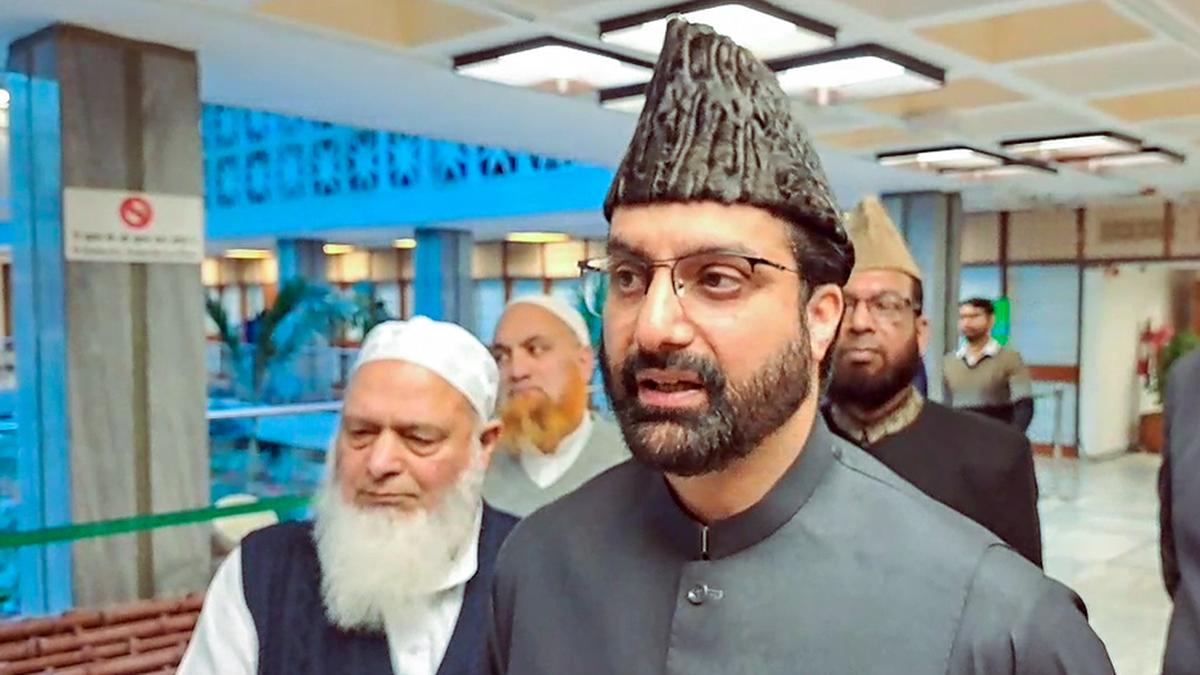 |
|
The recent meeting between Hurriyat chairman Mirwaiz Umar Farooq and the Joint Parliamentary Committee (JPC) on the Waqf (Amendment) Bill highlights significant concerns within the Muslim community of Jammu and Kashmir. Mirwaiz, representing a coalition of 45 Muslim religious bodies, delivered a six-point memorandum expressing strong opposition to the proposed amendments. His visit to New Delhi, the first since the abrogation of Article 370 in 2019, underscores the political sensitivity surrounding the issue and the long-standing tensions between the central government and the Kashmiri Muslim community. The memorandum's core argument centers on the belief that the amendments infringe upon the religious autonomy and rights of the Muslim community, potentially leading to further disenfranchisement and mistrust. The amendments are viewed as undermining the existing Waqf Act, which governs the management and protection of Muslim religious endowments. The lack of prior consultation with the community, and the JPC's failure to visit Jammu and Kashmir before drafting the amendments, are cited as major flaws in the legislative process. This raises questions about the government's commitment to inclusive governance and respectful dialogue on matters of religious significance.
The specific points of contention outlined in the memorandum highlight the anxieties felt within the community. The proposed amendments appear to grant excessive power to the state, potentially jeopardizing the independence of Waqf institutions. The reduction of Muslim representation in Waqf boards, the removal of a mandate for a Muslim CEO, and the government's increased authority over Waqf properties are all deeply concerning. The removal of the provision for “Waqf by user” further limits the community's control over its religious assets. These changes are interpreted as a direct threat to the autonomy of religious institutions and the protection of Muslim personal law, a right guaranteed under Article 25 of the Indian Constitution. The argument presented is that these amendments, far from improving the effectiveness of the Waqf Act, are designed to exert greater control over Muslim religious life in a region where religious identity is inextricably linked with political identity.
The Mirwaiz's meeting with the JPC also assumes significant political weight, representing a rare instance of engagement between the government and a prominent Kashmiri leader who has been critical of central policies. While the BJP-led government engaged with the Hurriyat in 2004, this meeting marks a renewed, albeit limited, attempt at dialogue after years of strained relations. However, the Mirwaiz's statement that the JPC seemed determined to pass the bill without further consultation suggests that the government may not be receptive to the concerns raised. The fact that the JPC did not conduct on-the-ground assessments in Jammu and Kashmir prior to drafting the amendments is viewed as a serious oversight, further fueling distrust and allegations of disregard for the voices of those most directly affected. This incident reveals a larger concern about the implications of legislative changes affecting religious communities without adequate participation and deliberation, and raises fundamental questions about the balance between religious freedom and state authority in a pluralistic society.
The situation in Jammu and Kashmir, particularly the relationship between the central government and the local Muslim population, is fraught with historical complexities. The abrogation of Article 370, the ongoing security situation, and perceived instances of marginalization have created an environment of heightened sensitivity and suspicion. The Waqf Bill amendments are seen within this broader context, with many believing that they are a further attempt to erode the rights and cultural autonomy of the Muslim community. The lack of trust between the government and the representatives of the Muslim community poses a significant challenge to finding a resolution that respects the concerns of all stakeholders. Moving forward, a transparent and inclusive dialogue is essential, prioritizing genuine engagement and ensuring that the voices of the affected communities are heard and valued in the decision-making process. Failure to achieve this could further exacerbate tensions and undermine the goal of fostering peace and stability in the region.
Source: Mirwaiz meets parliamentary panel on Waqf Bill, opposes amendments, seeks meaningful talks
